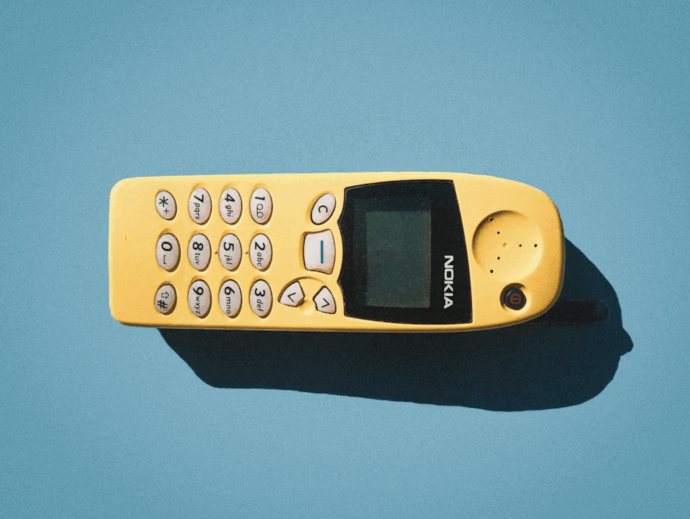Remember Bongo? If you had a phone in the 2000s, it was probably a Nokia. In between games of Snake, you may have texted a question to that cheeky “all-knowing monkey” and got back a witty (and sometimes spookily accurate) answer. Whether it was about your crush, your future, Bongo always seemed to know just enough to keep you entertained.
But Bongo wasn’t magic. It was powered by a mix of big data, human researchers, and clever processing. In a way, it was a Y2K-era precursor to what we now call AI.
Fast forward to today, and the questions are no longer just, “Who is [insert name here]?” but “Can AI access my personal data?”, “Does AI collect data about me?” and perhaps most importantly: “Who’s selling it?”

What Data Does AI Take?
AI is hungry. Like, insatiably hungry. To train, perform, and improve, it feeds on massive datasets, from medical records to shopping habits to the playlists you loop on Spotify.
- Generative AI (such as ChatGPT or Gemini) collects the prompts you type in. Every question, correction, and “oops, ignore that typo” becomes potential training material.
- Predictive AI (like what drives your TikTok feed or Netflix recommendations) hoovers up every click, pause, like, and scroll to predict what you’ll do next.
- Smart devices (think Fitbits, Alexas, even “AI-powered” toothbrushes) gather voice data, health stats, and daily habits—sometimes around the clock.
Back in Bongo’s day, we texted questions voluntarily. Now AI often collects data passively, without us even noticing.

Where Does it Go? Store vs. Sell
When AI systems collect your data, they don’t just hold it. They:
- Store it in cloud servers (sometimes for years).
- Analyse it to refine algorithms.
- Sell or share it with third parties, often advertisers or data brokers.
Have you heard the saying, “If the product is free, you are the product”? That’s the reality of modern AI-driven platforms. Your data is often the currency.
Is This a Privacy Problem?
Short answer: It depends.
- Companies like OpenAI allow you to opt out of training, but they still keep logs of your interactions.
- Social platforms like Meta track you across websites using cookies and pixels and use your data.
- Smart devices may “always be listening” (even when asleep).
In other words, AI isn’t just learning from you; it might be learning about you in ways you never signed up for.

AI Risks in Realtime
In 2025 alone, we saw multiple examples of private-ish AI conversations accidentally becoming public.
- Grok leaks: In August, nearly 300,000 user conversations with Elon Musk’s AI chatbot Grok were found indexed by Google. These weren’t just “what should I have for dinner?” queries—some contained sensitive personal details and even dangerous instructions. Experts called it a “privacy disaster in progress.”
- ChatGPT experiment gone wrong: Just weeks earlier, OpenAI briefly allowed shared ChatGPT conversations to appear in search engine results. The feature was meant to make helpful chats more discoverable, but it introduced a major risk: users’ personal details and even job applications were suddenly one Google search away. OpenAI rolled the experiment back within hours after backlash.
These incidents underline a critical point: even when companies promise privacy by default, experiments, indexing quirks, or overlooked settings can expose far more than users intend.
AI Privacy Laws are Still Catching Up
The laws meant to protect us, such as the GDPR (Europe) or CCPA (California), were designed before AI was moving at today’s speed. Right now:
- Regulators are scrambling to define what’s ethical, fair, and safe.
- Companies are experimenting with “consent” models, but privacy policies remain a maze of jargon.
- In practice, AI is outpacing legislation.
So, when it comes to data privacy in AI, we’re living in a digital Wild West.
What can you do? (AKA: How not to overshare with a robot monkey 2.0)
- Think before you type: Don’t put personal details (like your address, IDs, or private work data) into AI chatbots.
- Check privacy settings: Adjust what your apps and devices track.
- Limit device listening: Turn off (or unplug) smart devices when you don’t want them “eavesdropping.”
- Be picky: Only share data with companies you trust, and only when it’s necessary.

Lessons From the Bongo-Nokia era to Today
In hindsight, Bongo was almost innocent: playful, cheeky, and powered by some data, sure, but nothing like the firehose of personal information AI systems sip from today.
The lesson here is that data is the fuel for AI. And while it can be used to make life easier (for content brainstorms, recommendations, and even fraud detection), it can also cross into surveillance, manipulation, and erosion of privacy if we’re not careful.
So, the next time you ask Alexa, ChatGPT, or even your smartwatch a question, remember: you’re not just asking; it’s learning.


